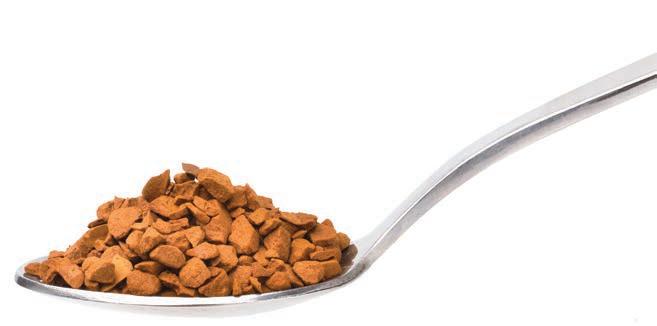PROFILE Cropster
Information is power SOFTWARE SOLUTION PROVIDER CROPSTER DISCUSSES THE IMPORTANCE OF BUSINESS INTELLIGENCE AND TIGHT INTEGRATION IN THE EVERCHANGING GLOBAL COFFEE INDUSTRY.
C
offee is a complex product. It passes through many hands across the supply chain, from the coffee farmer to the roasting plant. Information is generated at each step, creating hundreds of data points that impact a roaster’s end product, efficiency, and bottom line. Software as a service (SaaS) company Cropster has more than a decade of experience catering to the coffee industry, learning what data is important to the coffee industry and tailoring the service it provides to it. Cropster Head of Enterprise Sales and Education Andy Benedikter tells Global Coffee Report not having access to this business intelligence is a competitive disadvantage in the coffee industry. “It is key for anyone in the coffee business – for people in production, trading, and processing – to be able to track, manage, and share important information about the coffee, its success, and its traceability, to be able to make good decisions faster,” Benedikter says. While a roaster’s existing systems may be able to gather data on their own, not collating this can result in ‘data islands’, isolated key Cropster tailors its solutions to the individual needs of its customers. information that cannot be turned into business insights. Access to this collated data can improve the transparency of a coffee business. Benedikter says this shows due diligence to customers, can help build better relationships with suppliers, and provides a clearer picture of the business to managers. “Well integrated information is important to make critical choices, whether this be buying supplies, processing coffee, or understanding the success of sales, financial planning, and growth planning,” Benedikter says. “Not having this data causes you to fall behind your competitors, and might mean making errors or not planning for the future in the best way possible. Better and faster decisions always save money.” In his role, Benedikter works with Cropster’s larger customers, ensuring its service is optimised to their individual needs. “Everybody has processes in place specific to their operation, or ways they track information about roasting, procurement, sensory, and so on,” Benedikter says. “Only how they do it differs. As a SaaS company, we approach this by providing the broadest possible spectrum of data points and customise the existing application to the needs of the user, rather than building something from the ground up. This saves them time and money.” Cropster has developed its platform in direct collaboration with the coffee industry, incorporating feedback from a variety of business of different sizes in different fields of the industry. It has also taught them how to adapt its service to different customers. “Our goal at Cropster is to make sure our customers can use the tools and systems they already have in place and tie them into our system,” Benedikter says. In a recent case, Benedikter travelled to the United States for a site visit with a prospective
34
G C R | M AY /J U N E 2 0 2 0
customer who wanted Cropster to track roasting information, automate the process, and tie into its quality control procedures. This information had to be shared with the enterprise resource planning (ERP) software the business used to manage inventory and the sales and logistics of the procurement process. “We asked them for their workflow goal – what they want to achieve in non-software terms – which was to determine if their production is consistent, the next coffee they buy, and how they can improve their profiles,” Benedikter says. “We integrated our interface with their ERP system to help them find the specific data points they needed. In this case, they have the green coffee stored in their ERP system, then push it to Cropster for roasting. That roast production is stored in Cropster, but is also synchronised back into the ERP system to keep things level.”





















